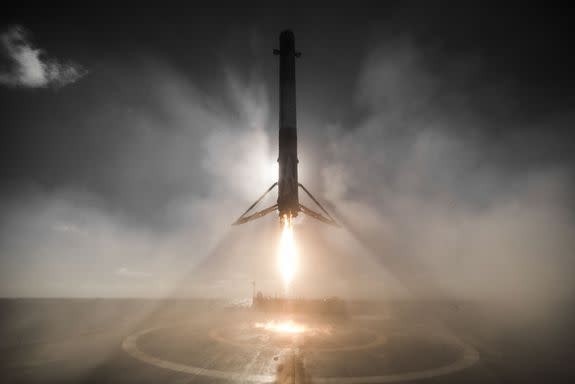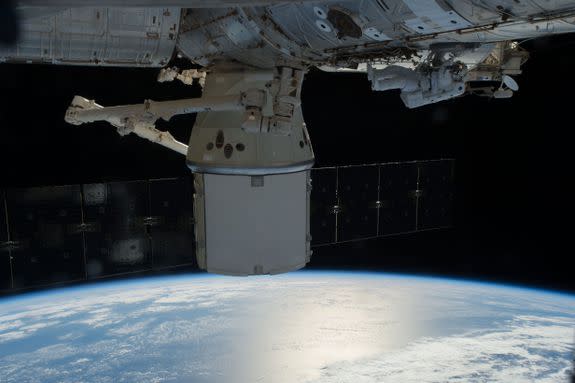SpaceX's historic rocket launch Saturday could end in another dramatic landing

On Saturday, SpaceX is expected to make history by launching its first Falcon 9 rocket from historic launch pad 39A at Kennedy Space Center in Cape Canaveral, Florida.
The pad was originally used during NASA's Apollo era in the 1960s but was revamped to serve the space shuttle in the 1970s.
SEE ALSO: SpaceX did something amazing over the weekend
"Some of humanity's greatest adventures in orbit began at Launch Complex 39A," NASA said in a statement. "Astronauts lifted off from this pad six times between 1969 and 1972 to walk upon lunar soil."
On Saturday, 39A will feel the flames of a rocket that represents a new generation of American spaceflight — one marked by private ambition and public partnerships — for the first time.

Image: spacex
If all goes according to plan, the Falcon 9 will launch an uncrewed Dragon cargo ship loaded down with astronaut supplies and experiments on its way to the International Space Station at 10:01 a.m. ET. The launch is under a contract with NASA.
But that's not all.
Elon Musk's private spaceflight company will also attempt to land the first stage of the Falcon 9 rocket back on land at Cape Canaveral, a feat they have pulled off twice before. This one will occur during daylight, which will make for a unique spectacle.
You can watch the history-making launch and landing in the window below:
SpaceX usually attempts to land its rockets on drone ships in either the Atlantic or Pacific oceans, far from shore. So far, the company has managed five of those drone ship landings.
While these rocket landings look amazing, they're also out to serve an important purpose.
SpaceX is testing the feasibility of reusing rocket stages instead of building new hardware for every launch. Traditionally, rocket stages are simply discarded in space after serving their purpose, but by reusing them, it could greatly reduce the cost of launching objects to orbit.

Image: nasa
If this launch is successful, it will be SpaceX's first from Cape Canaveral since one of the company's Falcon 9 rockets exploded during fueling before what should have been a routine test in September.
That explosion occurred at a different one of SpaceX's launch pads, severely damaging it.
Assuming the Dragon takes flight on time, it should reach the Space Station by around Monday.
